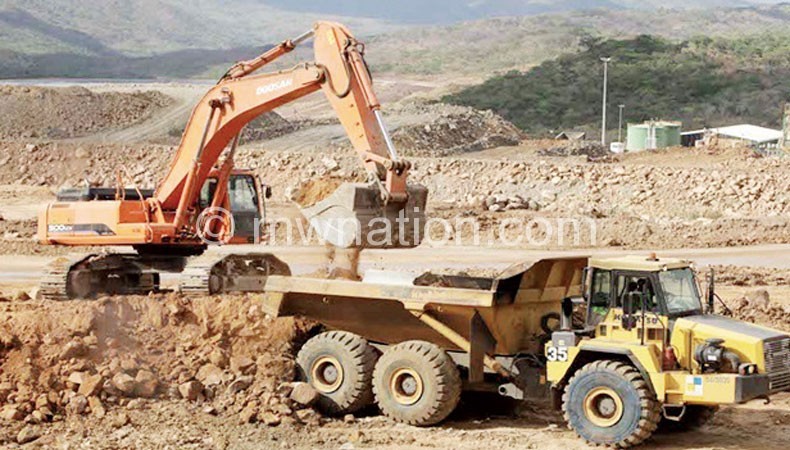Malawi dismisses CSOs on mining
Malawi’s Ministry of Natural Resources, Energy and Mining has dismissed accusations levelled against it by some civil society organisations (CSOs) that it does not consult them when formulating documents governing the mining sector.
Some CSOs such as the Catholic Commission for Justice and Peace (CCJP) and the Citizen For Justice (CFJ), recently outlined weaknesses surrounding legislation guiding Malawi’s mining sector and faulted government for lacking platforms for effective consultation and engagement when formulating mining documents.

The CSOs, most of whom are implementing mining-related projects, have also been criticising government for continued use of archaic mining legislation which they argue do not respond to emerging issues in the country’s infant mining sector.
But the ministry’s public relations officer, Levison Wesley Undi, when asked to respond to recent CSOs criticisms, said it was imperative for all Malawians to understand that mining is a new culture in Malawi.
“There are a lot of issues that people are saying such as the accusation that government does not consult other relevant stakeholders when it comes to developing laws governing the sector. But the truth of the matter is that there are processes in place and most stakeholders participate in those processes,” he said.
Undi said Malawians should accept that mining activities are blossoming in Malawi, saying there are calls for good outreach programmes which the ministry is currently undertaking to ensure that Malawians understand what the mining processes are all about.
On archaic legislation, he said government is currently reviewing the Mines and Minerals Act and that the review process is in its final stages.
“A lot of people will be involved in the finalisation of the document because it is for Malawians. So, we would want to involve Malawians so that they own the document,” said Undi.
He also said most of the laws related to mining are being worked on for them to be in line with the best practices in the region.
Undi also dismissed allegations that the ministry does not consult relevant stakeholders in the mining sector when it comes to formulating documents, saying most CSOs are engaged at every stage of formulating the documents “and there we have overwhelming evidence on that”.
Malawi is using the Mines and Minerals Act of 1981, the Environmental Management Act of 1996, the Petroleum (Exploration and Production) Act of 1983 and the Explosive Act of 1968 all which, experts say, do not augur well with the present mining boom in Malawi.
Some social commentators have said the outdated laws are fueling lack of transparency and accountability in the proceeds from mining, a situation which they say is disadvantaging the socio-economic development of Malawi.
Currently, mining is contributing about 10 percent to Malawi’s total wealth as measured by the gross domestic product (GDP), but it is projected that the sector will contribute not less than 20 percent of GDP in 2016, according to government officials.





